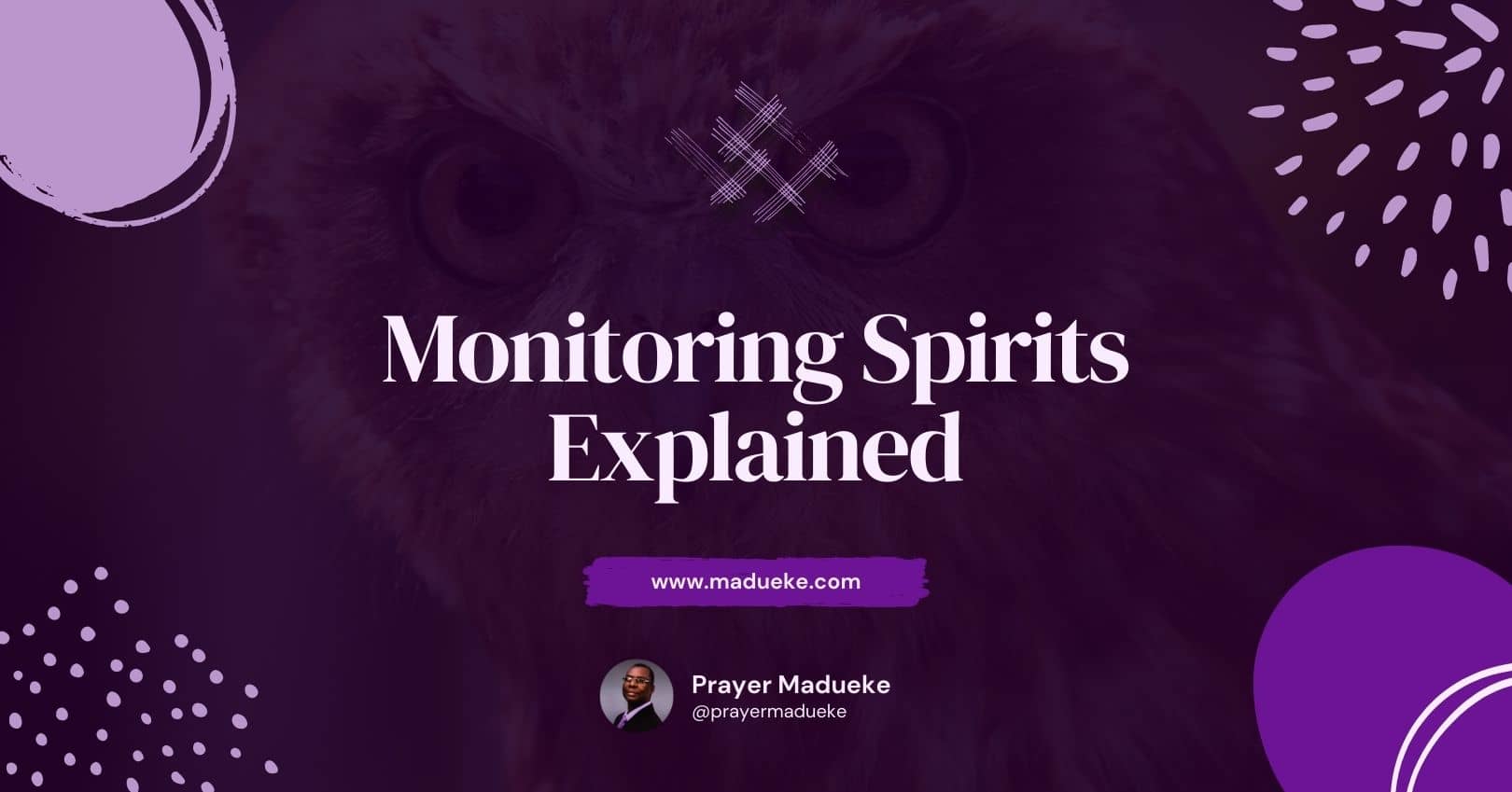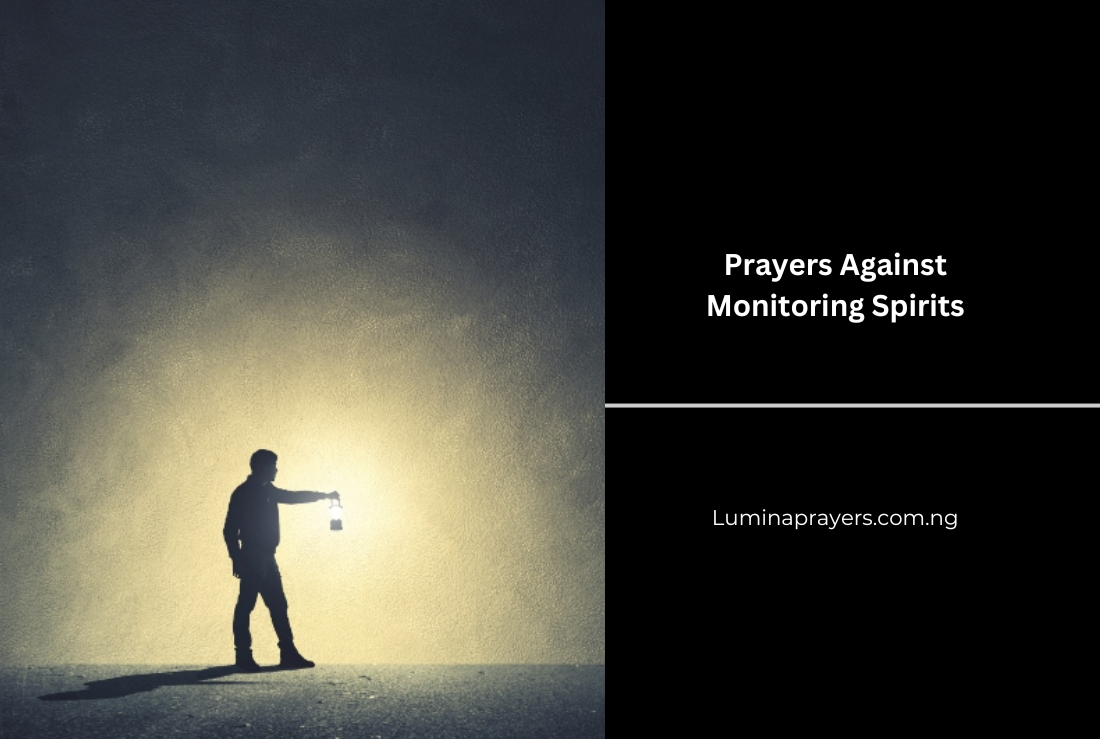How To Stop Monitoring Spirits From Monitoring You

In an increasingly interconnected world, concerns about privacy and surveillance are not limited to governmental or corporate entities. A growing segment of the population expresses unease about what they perceive as spiritual surveillance, often referred to as monitoring spirits. While lacking scientific validation, the belief in such entities and the desire to mitigate their perceived influence are deeply held for many.
This article explores various perspectives and strategies individuals employ to address these concerns, ranging from religious practices to mental health approaches.
Understanding the Phenomenon
The concept of "monitoring spirits" varies across different religious and cultural beliefs. It often involves the idea that unseen entities, either malevolent or simply observant, can track and influence individuals' thoughts, emotions, and actions.
These beliefs are prominent in some Pentecostal and Charismatic Christian denominations, as well as certain African Traditional Religions and syncretic practices. For example, some believe demons or other negative forces can "spy" on individuals to identify weaknesses or opportunities for spiritual attack.
Religious and Spiritual Approaches
For those who believe in the reality of monitoring spirits, religious practices often form the cornerstone of defense. Prayer is frequently cited as the primary method for seeking divine protection and intervention.
Regular prayer, specific prayers for protection, and engaging in intercessory prayer for others are all common practices. Fasting is another religious practice believed to strengthen one's spiritual connection and resilience against negative influences.
Biblical scripture, particularly verses referencing spiritual warfare and divine protection, are also frequently invoked. Some individuals engage in activities like anointing their homes with oil or participating in deliverance ministries, which aim to cast out negative spiritual entities.
“We are not fighting against flesh-and-blood enemies, but against evil rulers and authorities of the unseen world, against mighty powers in this dark world, and against evil spirits in the heavenly places.” - Ephesians 6:12 (New Living Translation)
Mental Health Considerations
While religious beliefs are central to many dealing with perceived spiritual surveillance, mental health professionals offer alternative perspectives. Feelings of being watched, controlled, or influenced can sometimes be symptomatic of underlying mental health conditions, such as anxiety disorders, paranoia, or psychosis.
Cognitive Behavioral Therapy (CBT) can help individuals identify and challenge negative thought patterns contributing to these feelings. Therapists may also explore whether these beliefs are causing significant distress or impairment in daily functioning.
If the beliefs are assessed as delusional or significantly impairing, medication may be considered as part of a comprehensive treatment plan. It is important to distinguish between deeply held religious beliefs and symptoms of a mental health condition.
Practical Strategies for Managing Anxiety and Paranoia
Regardless of the origin of the feelings, several practical strategies can help individuals manage the anxiety and paranoia associated with perceived spiritual surveillance. Establishing a consistent daily routine can provide a sense of stability and control.
Practicing mindfulness and relaxation techniques, such as deep breathing exercises or meditation, can help reduce overall anxiety levels. Limiting exposure to media or conversations that reinforce fears about surveillance may also be beneficial.
Building strong social connections and engaging in enjoyable activities can provide a sense of grounding and reduce feelings of isolation. It is crucial to differentiate between rational security measures, like protecting personal information online, and excessive paranoia.
Seeking Support and Discernment
Navigating concerns about monitoring spirits can be challenging, and seeking support from trusted individuals is often helpful. For those who hold religious beliefs, this might involve consulting with pastors, elders, or spiritual mentors.
These individuals can provide guidance, prayer, and accountability. It's important to find sources of support that are balanced and avoid sensationalism or fear-mongering. Developing discernment in distinguishing between genuine spiritual insights and unfounded fears is also crucial.
If mental health concerns are present, seeking professional help from a qualified therapist or psychiatrist is essential. A mental health professional can provide an objective assessment and evidence-based treatment options.
The Significance of Belief
Whether one believes in the literal existence of monitoring spirits or interprets these concerns as manifestations of psychological distress, the impact on individuals' lives is real. For many, these beliefs are intertwined with their sense of identity, purpose, and worldview.
Respecting diverse perspectives and offering support, rather than judgment, is essential. Finding healthy coping mechanisms, whether through religious practices, mental health interventions, or a combination of both, is crucial for well-being.
Ultimately, addressing concerns about monitoring spirits involves a holistic approach that considers both spiritual and psychological dimensions.


















